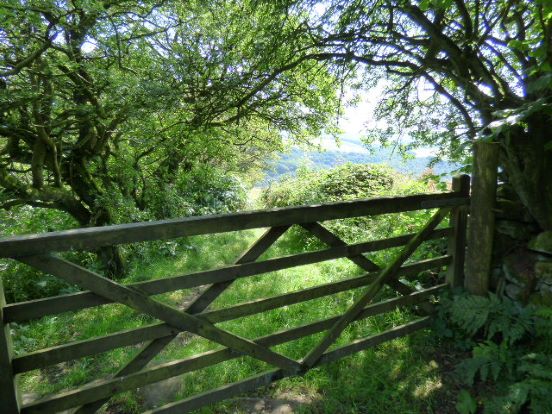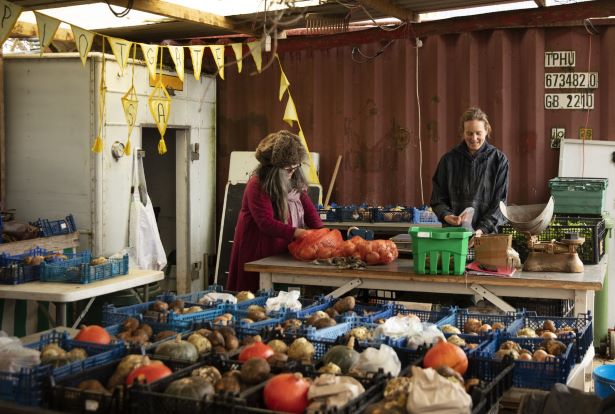|
This is serious, given the growing threat of water shortages in UK’s populous South-East, the major part played by food insecurity in our cost-of-living crisis and the fact that the agricultural sector is the greatest single source of ecological and climate damage on Earth. Climate Psychology takes a pride in championing social justice issues alongside the CEE, but we seem relatively mute about the way our food system causes colossal, multi-level harm.
Developments in Climate Psychology
In a bit over a decade, the Climate Psychology Alliance has grown and evolved impressively. This is evident in the latest edition of Explorations, titled ‘Widening the Frame’. CPA’s vision always had breadth, as I was reminded by a flip chart from 2012, unearthed by Judith Anderson. Now the work has gained substance, conceptually, culturally, demographically and geographically.
Some early hopes were not destined to be fulfilled. Despite moments when the hydra of denial seemed to be on the wane, these proved to be false dawns. A growing understanding of the psycho-social roots of failure to change in the face of the emergency has still not noticeably altered that situation. James Hillman’s famous title “We’ve Had a Hundred Years of Psychotherapy and the World’s getting Worse” comes to mind. But doubt as to outcomes does not make giving up an acceptable option. Faith in the process has to combine with asking ourselves as honestly as we can what amounts to meaningful work.
Emphasis in CPA has shifted away from notions of helping to avoid the worst. Attention has focussed on the need to grieve inexorable loss, on witnessing hardship and suffering where it is being felt most, on engaging with children in their fear and, for those in the rich world who enjoyed it, relinquishing the delusional security of our species bubble. Climate psychologists may after all be more hospice workers than midwives. Yet many versions of Active Hope, of sensible and creative repair, are still available.
One book awaiting publication offers a wide-ranging and ground-breaking exploration of the philosophical, spiritual and psychological strands informing and shaping our diverse field. It combines this with memorable instances of struggle to engage with the afflicted, conflicted and fast-changing world we now inhabit. Due to publication difficulties, the book has had a long and difficult birth process and neither the final title nor cover image are now available, but it will be worth waiting for. It has over 20 authors and is edited by Steffi Bednarek. It grew out of her online meeting with four other psychotherapists: Bayo Akomolafe, Mary-Jayne Rust, Sally Weintrobe and Francis Weller.
There is a line from the introduction worth quoting: “All the authors draw on their psychological expertise, while also sitting with a sense of lostness and humility.” There is a paradox about strength here. That strength in vulnerability was palpable in the online discussion and has been carried through into the book. Yet it is a bold and adventurous work, as it needed to be, given the worldview it espouses.

Image Credit: Wendy Hollway
The book takes as its key proposition the death of the familiar. I took from this a dual meaning. Periods of upheaval, insecurity and danger have been a recurrent experience throughout human history, whether from natural causes, epidemics, war and invasion, or collapse due to unsustainable economic systems. Fear of apocalypse is nothing new. We have developed individual and cultural defences to help restore security or a sense of control.
But now that the stable Holocene epoch, which enabled agriculture and civilisations to develop, is giving way to the Anthropocene, a new truth is sinking in, or being defended against. Past catastrophes have doubtless felt total to those caught up in them, but now we are faced with an actual existential threat, both to humankind and much of the greater-than-human world.
A key point in the book, as indicated in the quote above, is that in order to face this – the ultimate difficult truth – we must first allow ourselves, find a way, to feel the awful sense of helplessness, dread and uncertainty it generates. This has a deep resonance with psychotherapy at its best, but the book also calls for a radical re-framing of therapeutic practice. One only has to look at the insistence on a positive approach adopted by many environmental organisations to see how counter-cultural this task is. We have somehow to recognise what we have lost before we can attend to what we might yet conserve or create. The book contains a diversity of thought about pathways to accomplishing both these tasks.
Adrian Tait: a psychoanalytic psychotherapist, author, co-founder of CPA and, for over ten years, co-ordinator of a Transition network on the Somerset Levels. He remains active in hands-on, ecologically informed work.
|




